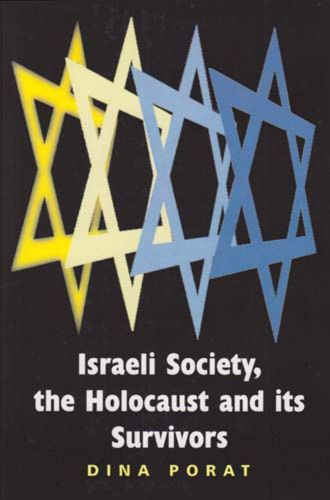Readings Newsletter
Become a Readings Member to make your shopping experience even easier.
Sign in or sign up for free!
You’re not far away from qualifying for FREE standard shipping within Australia
You’ve qualified for FREE standard shipping within Australia
The cart is loading…






This collection of twenty essays analyses the encounters of the Yishuv (the Hebrew community in pre-state Israel) and Israeli society with the Holocaust and with its survivors. Sixty years after the end of the Second World War this is still a painful topic, very much at the centre of the agendas of both Israel and the Jewish communities worldwide, focusing on a soul-searching issue: was the tragedy unfolding in Europe part and parcel of public life in the Yishuv, its priorities and anxieties, and did Israeli society embrace the survivors as they deserved? Based on a wide scope of primary sources and on many years of research, the essays deal with a variety of poignant sub-issues, such as the attitudes of David Ben-Gurion, Martin Buber and other leaders, the understanding of the information about the ‘Final Solution’, relations and tensions between the Yishuv and the Jewish communities and youth movements in Nazi-occupied Europe, rescue plans and their failure, decisions regarding rescue made during a global war, and parallel changes in the attitude to the survivors and in Israeli and Jewish identity.The balanced answers provided in this collection take into consideration the limited resources of a small community under a mandate, and of a young, post-war country flooded by immigration, and the many dominant factors present during a world war and in its aftermath on which the Yishuv and Israel could have no impact, yet could not avoid criticism and pin-pointing of failures and deficiencies.
$9.00 standard shipping within Australia
FREE standard shipping within Australia for orders over $100.00
Express & International shipping calculated at checkout
This collection of twenty essays analyses the encounters of the Yishuv (the Hebrew community in pre-state Israel) and Israeli society with the Holocaust and with its survivors. Sixty years after the end of the Second World War this is still a painful topic, very much at the centre of the agendas of both Israel and the Jewish communities worldwide, focusing on a soul-searching issue: was the tragedy unfolding in Europe part and parcel of public life in the Yishuv, its priorities and anxieties, and did Israeli society embrace the survivors as they deserved? Based on a wide scope of primary sources and on many years of research, the essays deal with a variety of poignant sub-issues, such as the attitudes of David Ben-Gurion, Martin Buber and other leaders, the understanding of the information about the ‘Final Solution’, relations and tensions between the Yishuv and the Jewish communities and youth movements in Nazi-occupied Europe, rescue plans and their failure, decisions regarding rescue made during a global war, and parallel changes in the attitude to the survivors and in Israeli and Jewish identity.The balanced answers provided in this collection take into consideration the limited resources of a small community under a mandate, and of a young, post-war country flooded by immigration, and the many dominant factors present during a world war and in its aftermath on which the Yishuv and Israel could have no impact, yet could not avoid criticism and pin-pointing of failures and deficiencies.